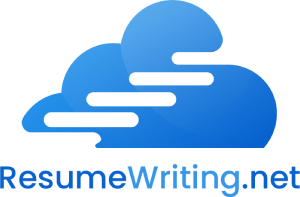We’ve all been there – in the middle of a job search, dream jobs picked out, resume ready, and no cover letter in sight. Many of us have sat in front of the screen with an open document, Googling for helpful cover letter writing tips. “Are cover letters even worth it?” often popped up.
The answer is yes – cover letters can make or break your job application. A well-written one will immediately catch the attention of any HR person. It will showcase your personality, qualifications, and, most importantly, enthusiasm for the job posting.
This post is aimed at job seekers who want to learn how to write an effective cover letter, what details to include, and, more importantly, what to leave out. Follow our tips and tricks, and start writing attention-grabbing cover letters quickly, getting you any job you want.
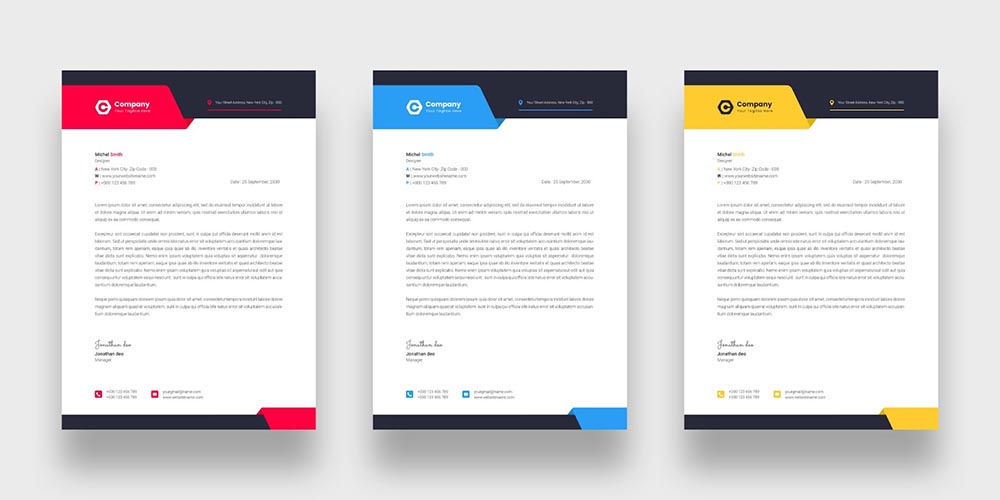
Include a Header
Let’s cover the basics. Where should you put your contact information? While your CV will have all of those details, it’s also a good idea to include an abridged version in the letter. Position the information at the very top of the document and include:
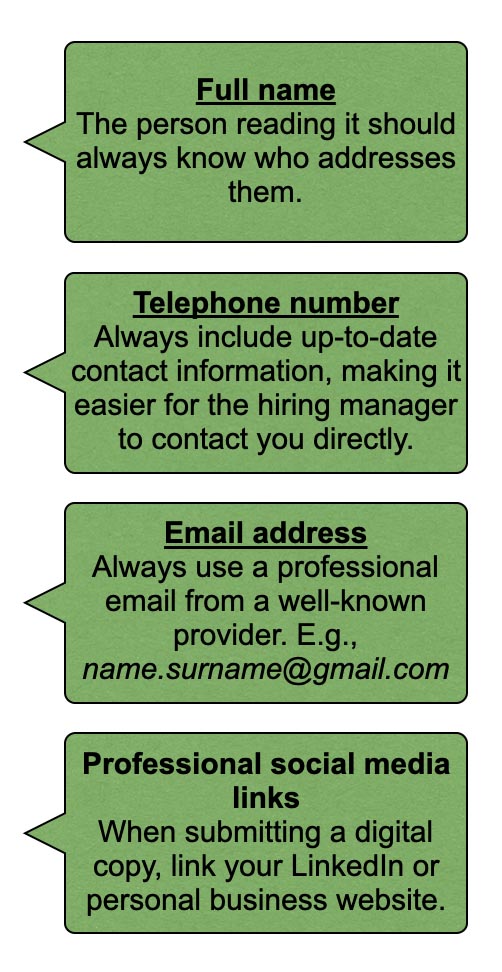
Address the Hiring Manager Directly
Take some time and research the company, more specifically, the person who is hiring. For example, if you’re applying to be a communications officer, open the company website and check who the Head of the Communications department is. Use the name to address the cover letter directly to the person hiring.
Even if you can’t find a specific name, avoid generic expressions like “Dear Sir or Madam” and “To Whom It May Concern.” Instead, directly greet the person reading your letter, starting with “Dear Hiring Manager.”
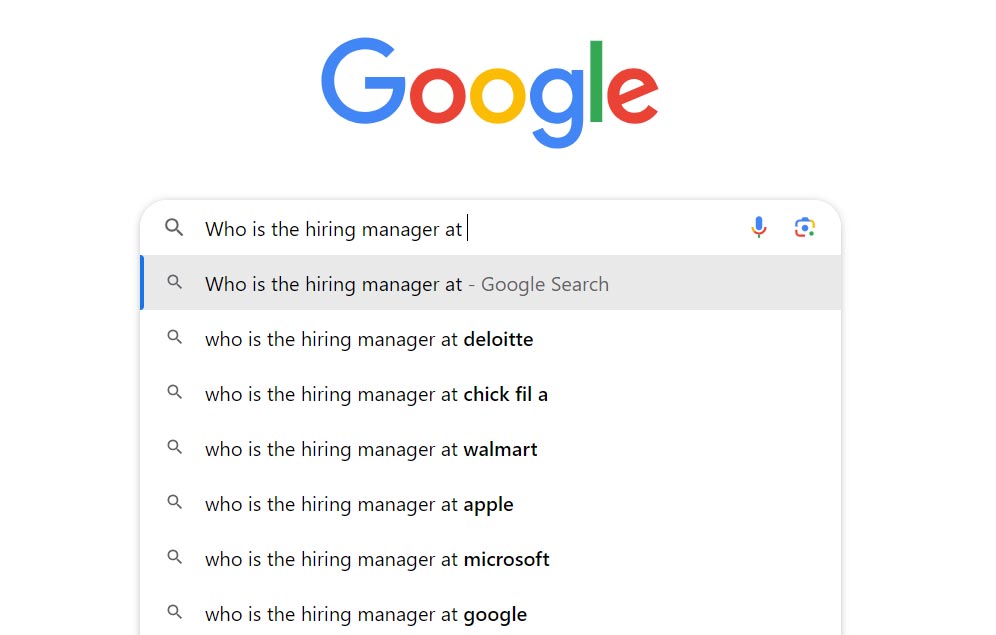
Personalizalize Each Cover Letter
The best cover letter advice you will ever get is to customize each application to the specific job you’re applying for. HR specialists and department heads can immediately spot a generic letter and lose interest. Adapt each cover letter to match the job description, using the keywords the employer used in the job posting.
Also, never forget to mention the name of the company and the position you’re interested in.
Opening Paragraph
To introduce yourself, hook the hiring manager by giving them a reason to keep reading. Mention a noteworthy achievement or skill that can be valuable for the position you’re applying for and the company. Blending your skills with those asked in the job advertisement will surely raise interest.
Showcase Your Unique Value
Using a cover letter to recap your resume is a bad idea. Pick two or three skills or qualifications that best match the job description, giving specific examples of why you’re fit for the position.
Stay away from broad statements and include concrete examples, such as:
| Don’t Include | Include |
| I am a highly motivated individual with excellent communication and social media skills. | I increased website traffic by 20% through targeted social media campaigns, resulting in a 15% boost in sales within six months. |
| I have a strong track record of success in problem-solving. | I developed a new workflow system that reduced project turnaround time by 30% and improved client satisfaction by 10%. |
| I am a creative and innovative thinker. | I created a new marketing campaign that generated 500 new leads and increased brand awareness by 25%. |
Research and Reference the Company
Do your research before using these cover letter writing tips in your application. Learn as much as possible about the company’s hiring, its goals, ethos, and work culture. Find out more about its history or significant achievements and mention how it’s inspired you. You should mention how your skills and experience can help them realize future projects.

Show Your Enthusiasm
You’re undoubtedly trying your luck by applying to countless companies, and the repetitive process might wear you down. It’s important not to let this show in your letter. Express excitement about working with this company, but be genuine and don’t go overboard. Most employers recognize cliché phrases like “I am incredibly excited to have the honor to apply for this prestigious position.”
Closing Paragraph
This is your chance to close the deal, so to speak. Mention your interest in the company and the job position once again, and thank the hiring manager for taking the time to read your cover letter. End it by saying you’re eager to discuss your contribution further in the form of an interview or a follow-up email.
Professional Tone and Language
Use formal and industry-appropriate language to show your future employer you’re a serious candidate. Tailor your tone to that of the company. For example, keep it serious and businesslike when applying to an insurance company. On the other hand, be a little more expressive when trying for a job at a hip start-up, but don’t push it too far.
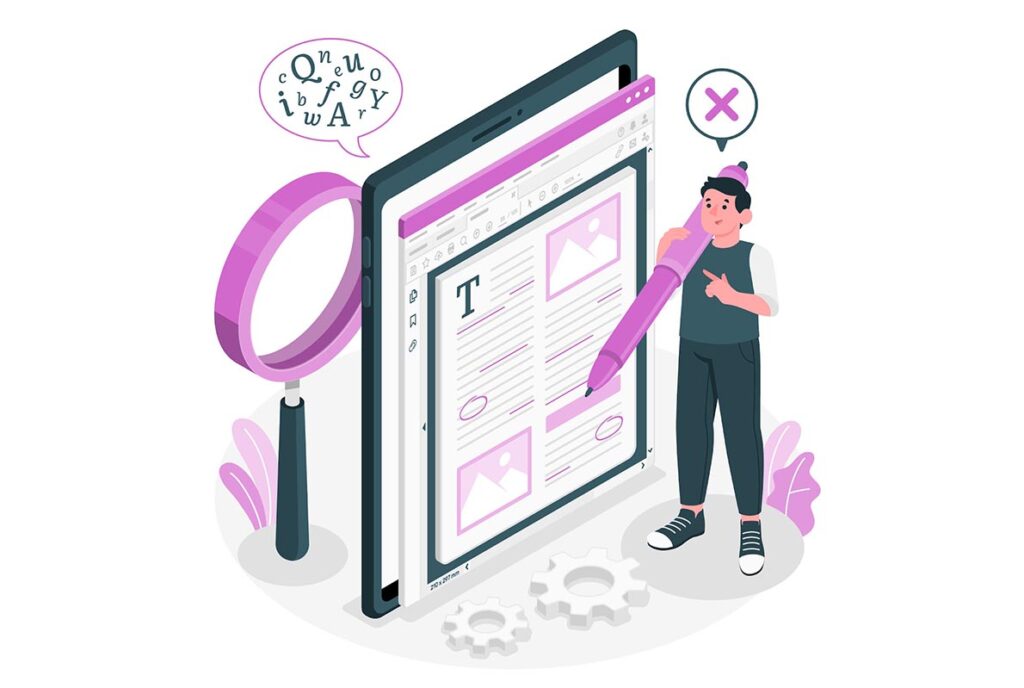
Most importantly, read and reread the text thoroughly. Remove any grammatical errors, typos, spelling, or even stray commas. You don’t want to get rejected because potential employers think you don’t know the difference between the words than and then. Services like Grammarly exist for a reason, so use them!
Length and Formatting
You might be tempted to treat this document like a full-blown essay, but that doesn’t align with the best practices for cover letters. You have to fit everything you want to say on one page, with three or four paragraphs at most. There are plenty of cover letter templates online that you can use and follow.
Another cover letter tip is to use a clean-looking and easily readable font, like Arial or Calibri. Don’t be tempted to shrink the spacing or use a smaller font. Leave enough white space so the eye can easily glide over the words. The format should not be crowded but rather easy on the eyes.
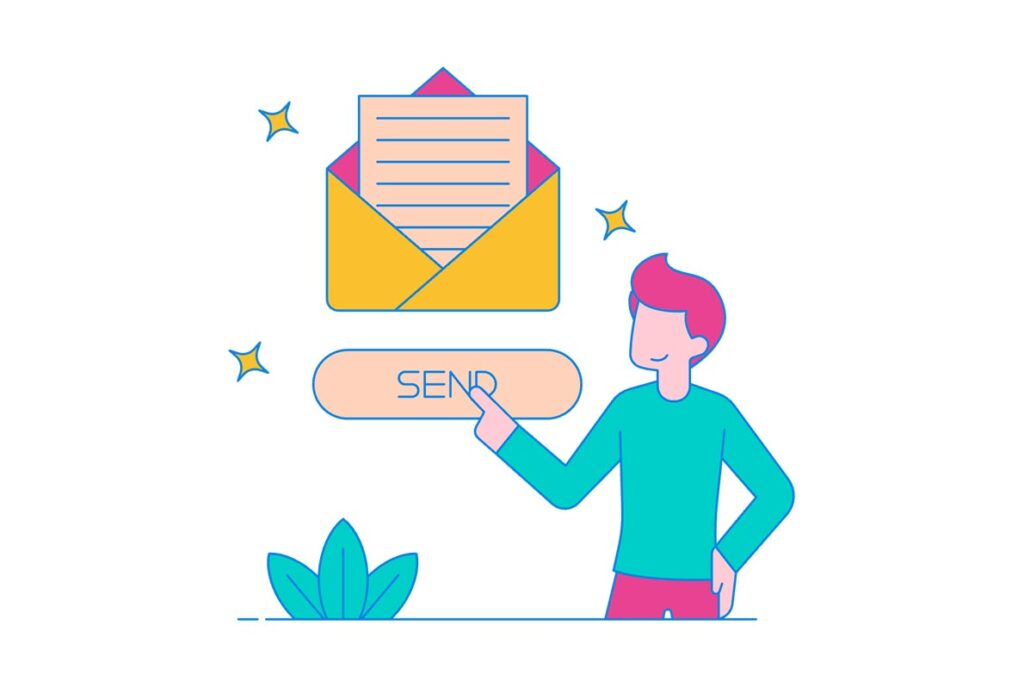
Follow-Up
Your work doesn’t end with completing the cover letter and sending your application. Make an even better impression by sending a follow-up email to ask if they received your CV and cover letter. Quickly mention your interest in the posted job position and thank them for their time and opportunity to apply.

Final Thoughts: Cover Letter Tips and Tricks
Job hunting is stressful, especially if you keep getting no for an answer. Having impressive work experience or transferable skills won’t matter if you don’t catch the attention of the hiring manager.
You can achieve this by following the above cover letter tips. Use everything you’ve learned here, and soon you’ll be the one combing through interested employers.
FAQ
Why should I send a follow-up email?
Emailing to follow up on your application proves your interest in the position. It shows your professionalism and ensures they will remember your name. It’s a sure way to stand out amongst a sea of candidates.
Can my cover letter be longer than one page?
Cover letters should be concise and to the point. Hiring managers have to go through hundreds of them, so they’re looking for readability and impact. If they come across a three-page essay, they’ll probably skip it and move on to the next one.
